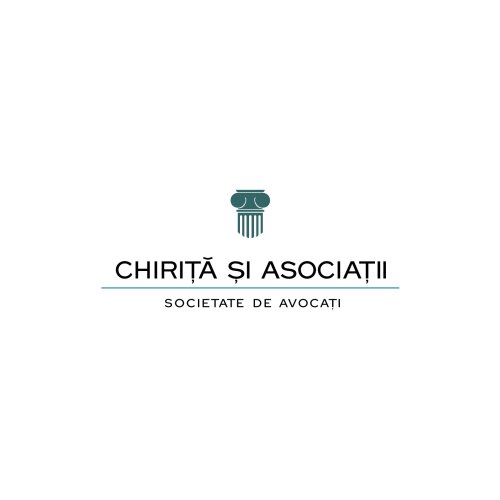Best Toxic Mold Lawyers in Romania
Share your needs with us, get contacted by law firms.
Free. Takes 2 min.
Or refine your search by selecting a city:
List of the best lawyers in Romania
About Toxic Mold Law in Romania
Toxic mold has become a significant health concern in Romania, particularly in areas with aging infrastructure or high humidity levels that foster mold growth. Mold exposure can lead to a variety of health issues, ranging from allergic reactions to serious respiratory problems. Romanian law considers the rights and responsibilities of property owners and tenants regarding mold prevention, remediation, and disclosure. Understanding these laws is crucial for anyone dealing with mold issues, whether they are property owners, tenants, or real estate agents.
Why You May Need a Lawyer
There are several common situations wherein individuals may require legal assistance with toxic mold issues:
- Landlord-Tenant Disputes: Disputes may arise regarding mold remediation responsibilities, the safety of living conditions, or financial compensation for related damages and health costs.
- Property Transactions: Issues can occur during the sale or rental of property if mold is discovered, especially if not disclosed by the seller or landlord.
- Health Claims: Individuals who have suffered health problems due to mold exposure may seek compensation or pursue action against responsible parties for lack of warning or inadequate remediation.
- Insurance Claims: Disputes with insurance companies over coverage for mold-related damages or losses may necessitate legal support.
Local Laws Overview
The Romanian legal framework regarding toxic mold primarily falls under property law, health regulations, and environmental safety standards. Key legal aspects include:
- Habitability Standards: Romanian real estate and rental laws require that properties meet certain health and safety standards, including being free from hazards like toxic mold.
- Disclosure Requirements: Sellers and landlords are legally obliged to disclose known issues, including mold, which may affect the property's safety or value.
- Responsibility for Remediation: Typically, landlords must maintain rented properties, which includes addressing mold issues. However, tenant-caused mold may shift maintenance responsibilities.
- Health Protections: Romanian laws safeguard against environments harmful to health, mandating remediation and sometimes compensation for affected individuals.
Frequently Asked Questions
What are the health risks associated with toxic mold?
Toxic mold exposure can lead to symptoms like nasal congestion, throat irritation, coughing, skin rashes, and potentially severe respiratory problems or neurological issues in vulnerable individuals.
How can I tell if my home has a mold problem?
Visible mold growth, musty odors, recent water damage, and health symptoms like those mentioned above are indicators of a potential mold problem.
Who is responsible for mold remediation in rental properties?
In Romania, landlords are generally responsible for maintaining safe living conditions, which includes addressing mold issues. However, if mold results from tenant negligence, the tenant may be held accountable.
Are landlords required to disclose mold problems to tenants or buyers?
Yes, Romanian law mandates that landlords and sellers disclose known mold issues that could affect the property’s value or habitability.
What legal recourse do I have if my landlord refuses to address a mold problem?
You can consider taking legal action for breach of contract or failure to provide a habitable living environment, potentially leading to repairs, rent reduction, or compensation.
Can I break my lease if there is a mold issue in my apartment?
Breaking a lease is complex and often requires legal guidance, but you might be able to argue constructive eviction if the mold issue makes the property uninhabitable.
What steps should I take if mold is discovered during a property transaction?
Consult with your real estate agent and potentially a lawyer to assess how mold impacts the transaction obligations and pricing negotiations.
Does my insurance cover mold damage?
Coverage for mold damage varies by policy. It’s important to review your insurance terms or seek legal advice to understand your coverage details.
What government authorities regulate mold and related issues in Romania?
Health and safety regulations related to mold are typically overseen by local health departments and the national environmental protection agencies.
What documentation should I keep regarding mold issues for legal purposes?
Maintain records of any communications, inspection reports, mold test results, repair invoices, and medical records if applicable.
Additional Resources
For more information or assistance related to toxic mold, you can consult the following resources:
- Ministry of Health: Offers guidelines on dealing with health hazards related to mold.
- National Environmental Protection Agency (ANPM): Provides environmental safety standards and compliance assistance.
- Local Public Health Departments: Can offer insights on local regulations and health concerns.
- Tenant Advocacy Groups: Provide support and advice for tenants facing mold issues.
Next Steps
If you require legal assistance with a toxic mold issue, consider the following steps:
- Document all mold-related issues and any health impacts experienced.
- Consult with specialists like mold inspectors or public health officials to assess the severity.
- Reach out to tenant advocacy groups or real estate professionals for initial advice.
- Contact a lawyer with experience in property law and environmental health issues to explore your legal options and guide you through resolving the issue effectively.
Lawzana helps you find the best lawyers and law firms in Romania through a curated and pre-screened list of qualified legal professionals. Our platform offers rankings and detailed profiles of attorneys and law firms, allowing you to compare based on practice areas, including Toxic Mold, experience, and client feedback.
Each profile includes a description of the firm's areas of practice, client reviews, team members and partners, year of establishment, spoken languages, office locations, contact information, social media presence, and any published articles or resources. Most firms on our platform speak English and are experienced in both local and international legal matters.
Get a quote from top-rated law firms in Romania — quickly, securely, and without unnecessary hassle.
Disclaimer:
The information provided on this page is for general informational purposes only and does not constitute legal advice. While we strive to ensure the accuracy and relevance of the content, legal information may change over time, and interpretations of the law can vary. You should always consult with a qualified legal professional for advice specific to your situation.
We disclaim all liability for actions taken or not taken based on the content of this page. If you believe any information is incorrect or outdated, please contact us, and we will review and update it where appropriate.
Browse toxic mold law firms by city in Romania
Refine your search by selecting a city.










